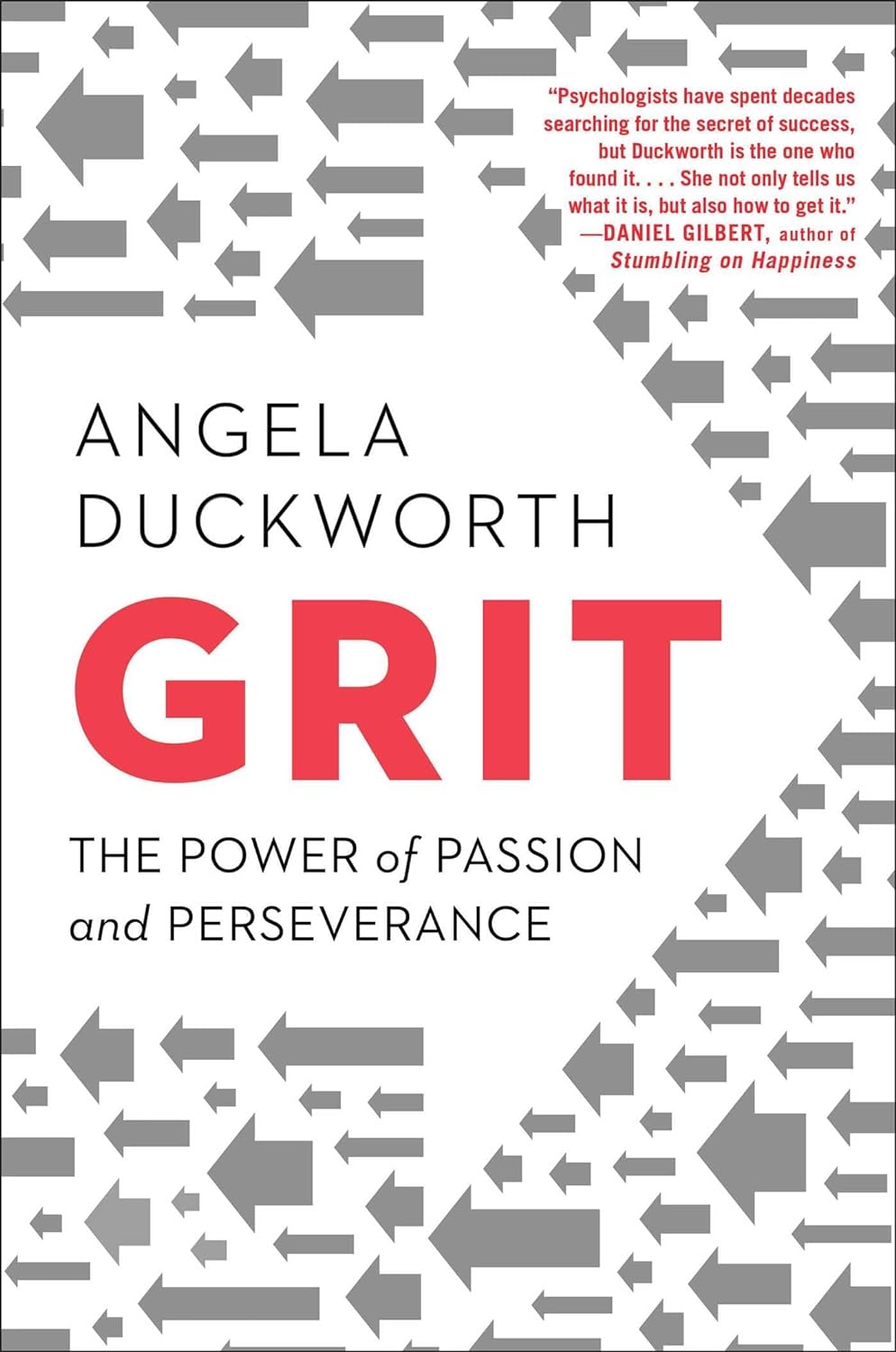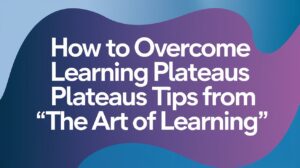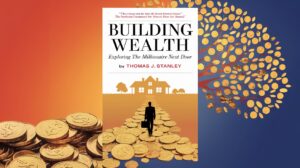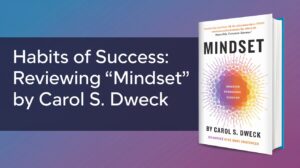Grit: The Power of Passion and Perseverance, by Angela Duckworth, is one of those seminal books that unpack one of the most essential elements of success: grit. Although talent and intelligence usually remain dominant themes in most talks about success, Duckworth shows great prowess in arguing that hard work, determination, and resiliency are much more significant to achieve excellence. Below, we will try to deep dive into Grit: main messages, passages to remember, and how and where to apply them in practice. Why this book can be recommended for reading to everyone who is serious about his personal and professional growth.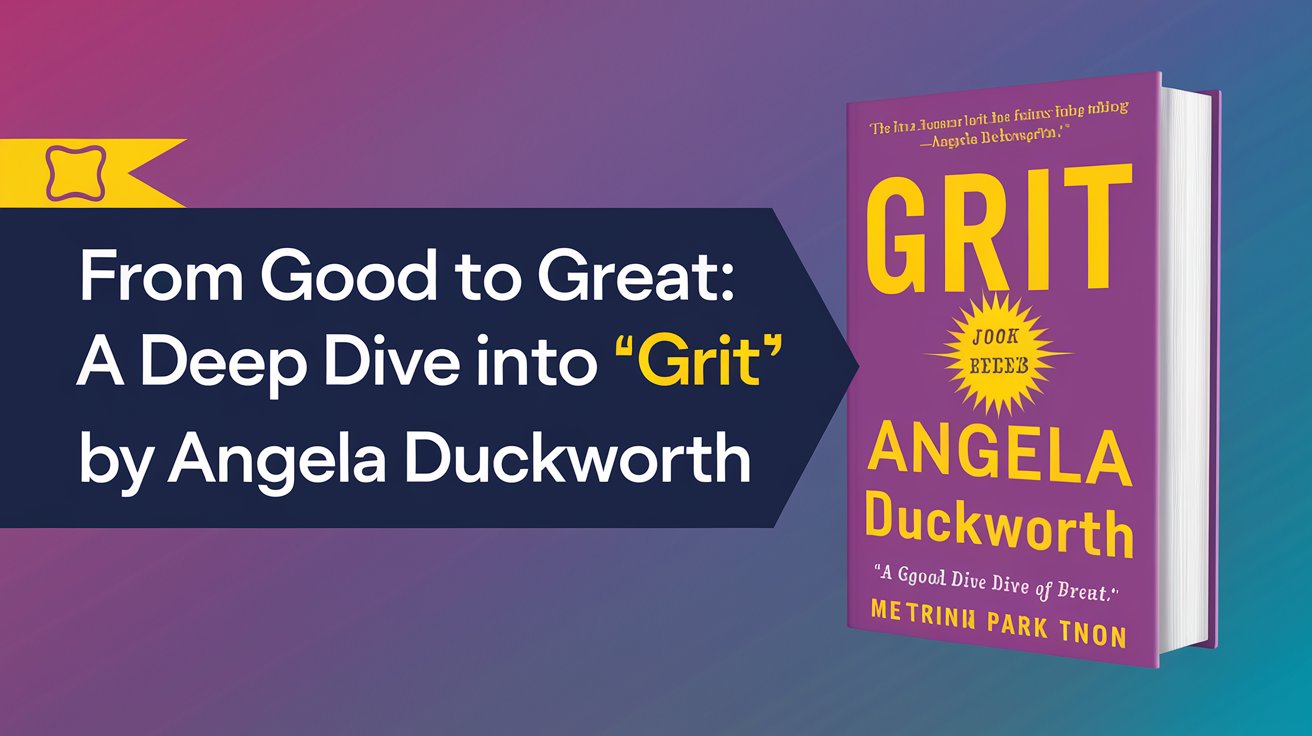
Overview of the Book
Grit is compiled from the work that Angela Duckworth, a psychologist and University of Pennsylvania professor, has done to answer what makes people successful. Having made the leap herself-from an exalted job in consulting into teaching and research-Duckworth is perfectly familiar with the importance of persistence. In her book, she weaves real-life examples, scientific research, and personal anecdotes to make a case for grit, defined as a combination of passion and perseverance.
As Duckworth is quick to note, while talent may be an important asset, it is by no means a singular-or even the most critical-predictor of success. Rather, it is those who can remain committed to their goals over long periods of time despite failure and set back that will be those most likely to achieve greatness. What she is trying to convey here is that grit can be developed; further, its development is what makes one’s potential possible.
Key Takeaways from Grit
There are so many insights in the book by Duckworth, but some of the key takeaways of the readers it conveys are as under.
1. Grit Beats Talent
One of the key points taken from Grit is that natural talent is, much of the time, overvalued, while the average underestimate is perseverance. Duckworth refers to studies wherein persons with a strong work ethic and commitment to their goals outpace those who may indeed have talent but lack persistence. Her formula for success can be summed up as:
Talent x Effort = Skill
Skill x Effort = Achievement
The effort, she says, is twice as important in this equation than the talent. In the absence of the latter-the time-bound effort of those even talented people will not realize their full potential.
2. Passion Matters — A Lot
Duckworth insists that passion is as complementary as perseverance, if not more so, to the pursuit of long-term success. Passion is not about a temporary interest in something; instead, it is an abiding love for the work you do. She said, “We have found that people who are most interested in their work are also most likely to be sustained”. It is the passion for doing the work that allows one to be resilient even when setbacks occur.
3. Growth Mindset is Paramount
Intimately related to Grit is Carol Dweck’s growth mindset-the view that abilities and intelligence are able to develop through effort, commitment, and learning from failure. Individuals holding such a mindset believe they can improve-a belief which begets more and more effective hard work. This is the reason jockeying Duckworth uses to support the idea that gritty individuals are very likely to adopt a growth mindset, which will allow them to view challenges not as obstacles but as opportunities for growth.
4. Failure is a Stepping Stone
Throughout the book Grit, Duckworth uses example after example to illustrate how failure for successful individuals is a time of learning rather than defeat. Indeed, she takes her time to point out that from professional athletes to entrepreneurs, using one’s failures as an opportunity to get better was quite common. She makes it clear that greatness is paved with setbacks, but how one responds to those setbacks-what really matters.
5. Grit Can Be Cultivated
One of the most empowering things to learn from Grit is that this is not a fixed trait; it can be developed. Duckworth then fleshes out the development of grit through identifying one’s passions, deliberate practice, and holding on to hope in the face of challenges. According to her, everyone has the potential to become grittier if only they develop the right mindset and strategies.
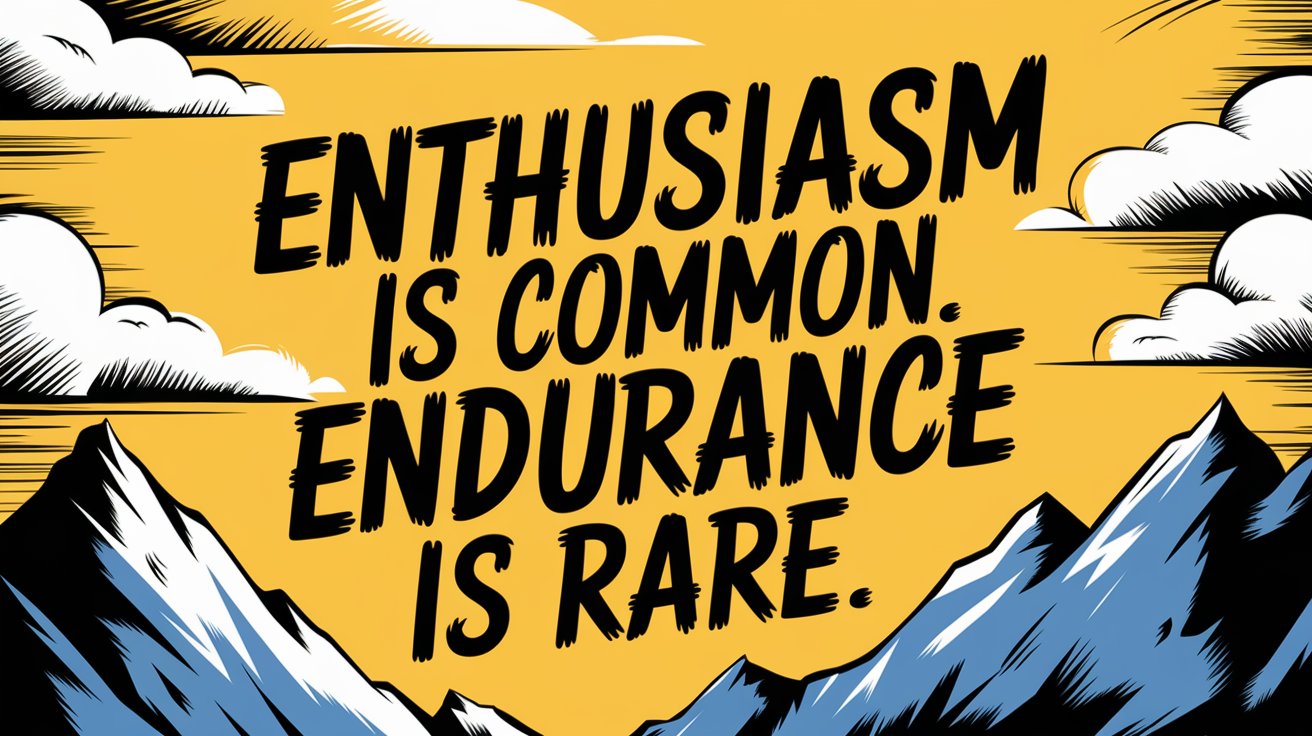
Best Line from the Book
Perhaps the most powerful lines from Grit are in this, Duckworth’s core message:
“Enthusiasm is common. Endurance is rare.”
This line reminds us that though many people start strong, but few have the stamina to weather challenges and setbacks. It brings into view what sets apart those who achieve greatness from those who fall short: endurance, not just passion.
Drawing on her own powerful story as the daughter of a scientist who frequently noted her lack of “genius,” Duckworth, now a celebrated researcher and professor, describes her early eye-opening stints in teaching, business consulting, and neuroscience, which led to the hypothesis that what really drives success is not “genius” but a unique combination of passion and long-term perseverance.
Putting Grit into Life
As much as the lessons in Grit are worth one’s time, the worth of the book comes into application in real life. Duckworth has presented several strategies that help in cultivating grit, many of which one can immediately apply in daily life:
1. Develop a Daily Practice of Perseverance
One of the more accessible ways to begin putting grit into practice is through a commitment to daily practice for any skill or goal you want to realize. It can be as simple as giving an extra 10 minutes each and every day to something you feel passionate about, whether it’s learning a new language, playing an instrument, or even bettering yourself at something related to your work. Consistency and perseverance count in this case.
2. Setting Long-Term Goals
According to Duckworth, long-term goals must be set about the stuff you are passionate about. Grit is not about some quick win; it’s about wanting something over a long period. It will be more appropriate to write down long-term goals and break them into smaller, achievable steps. Doing so can keep your momentum going during the harshest of times.
3. Love Failure as Feedback
Another pragmatic step to make is learning to view failures and setbacks not as reflections of personal failure but as feedback. Duckworth urges people to rethink their mindset from “I failed” to “What can I learn from this experience?” Framing failures as an opportunity for growth will help you develop the resilience that you’ll need to get through hard times.
4. Surround Yourself with Gritty People
The people you surround yourself with will determine much about personal growth. Make sure to be surrounded by people who can show grit and perseverance; such people will encourage you to go on with commitment to the goals and can further advise on how to overcome some obstacles.
5. Practice Deliberate Rest
While Grit focuses on hard work and persistence, Duckworth does emphasize the value of balance. Resting and taking time off is a conscious effort; burnout is to be avoided. Learning how to rest more strategically–to use one’s downtime recharging rather than quitting–is the key to long-term perseverance.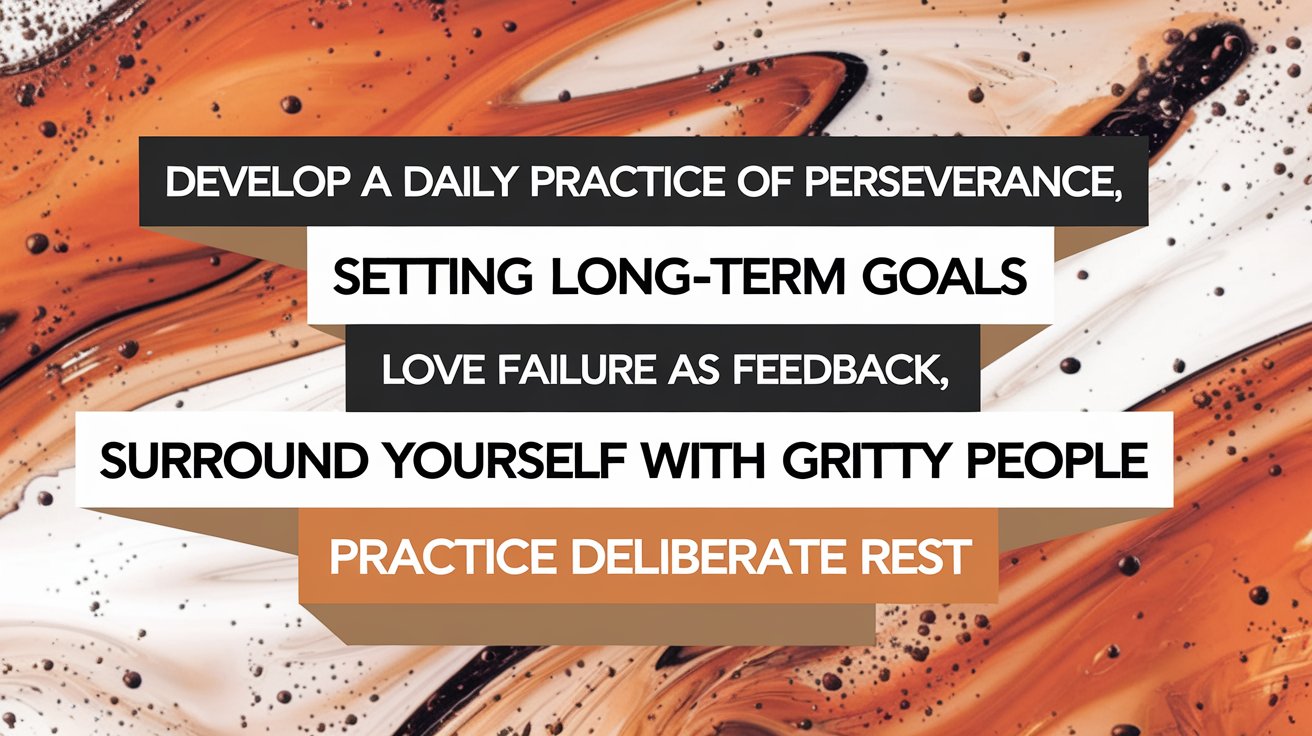
Critiques and Limitations
While Grit has widely been praised, it is not devoid of critics. Some have pointed out that Duckworth seems to place a little too much emphasis on effort from the individual, without taking proper consideration of the systems at work-for instance, socioeconomic status-that actually might limit the opportunities a person has. Other people question whether grit on its own really can account for success, with other variables such as luck, timing, and access to various resources being major factors. While Duckworth acknowledges these concerns, the heart of her argument remains what one might call within the power of an individual’s control: effort and perseverance.
While Grit is well-researched, another criticism of the book would be that it does not delve as deeply into the neuroscience behind grit as many readers might have hoped. For readers desiring self-help-type advice, though, these criticisms are relatively minor.
Why Grit is a Must-Read?
Grit is a must-read because it runs in opposition to conventional wisdom related to success. People take for granted talent and intelligence in the modern world, but what Duckworth proved was that these elements, important as they might be, still pale in comparison to the power of perseverance and passion. She gives real actionable strategies in the development of grit within one’s framework in life, thus backed by research, making it really useful for anyone who desires to grow personally and professionally.
The book is extremely relatable too. Duckworth covers the most different spheres, from the army to education, sports, and business. That means her lessons count for whatever people of whatever profession. Whether you’re an upcoming athlete, entrepreneur, or student, lessons in Grit are universal.
Conclusion
Angela Duckworth brings a fresh, encouraging look at success in Grit. She reminds readers that greatness is to be pursued not by the most talented or most intelligent person but by those passionate and unrelenting in their pursuit. By using practical lessons, quotable quotes, and scientific insight, Duckworth illustrates for readers the way they can take the state of grit further into their lives, pushing them from good to great.
It focuses on long-term commitment, resilience in the face of failure, and a growth mindset; readers can impose the principles of Grit in an effort to realize their goals and reach full potential. This is not just a book about knowing how to be successful; it’s a book about living success.

